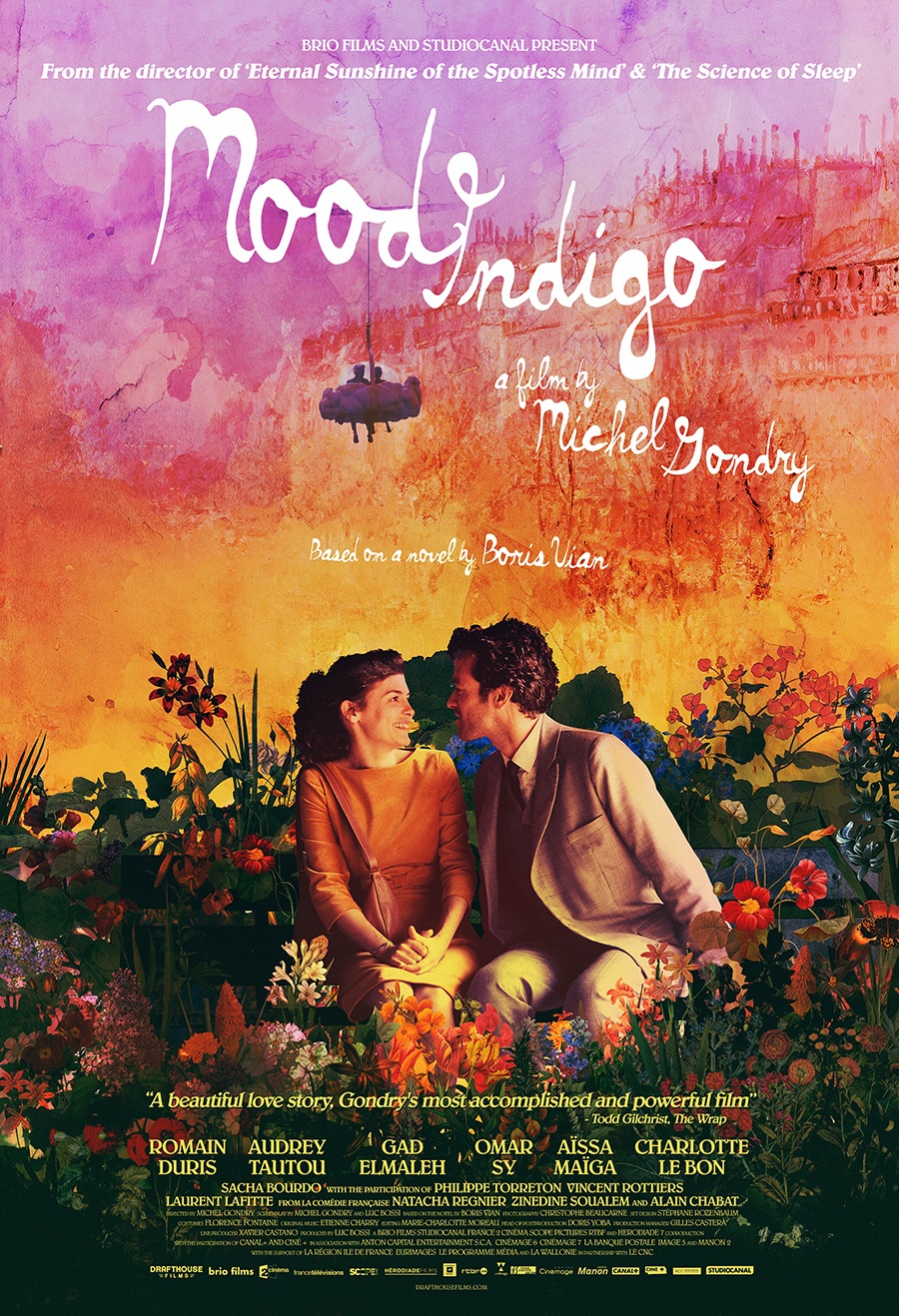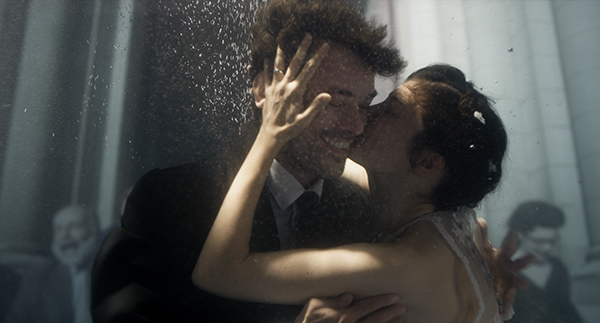Review: Mood Indigo
 Saturday, July 26, 2014 at 11:43AM
Saturday, July 26, 2014 at 11:43AM  Michael C. returning for duty. I'll be joining Nathaniel on the weekly new film review duties so you'll get two each weekend instead of just one.
Michael C. returning for duty. I'll be joining Nathaniel on the weekly new film review duties so you'll get two each weekend instead of just one.
My reflex reaction is to be protective of Michel Gondry’s Mood Indigo, and not simply because the director exists in a permanent state of grace for giving the world Eternal Sunshine. It’s because his latest film is such an easy target. To come branded with the moniker “quirky” is to risk immediate snide dismissal by those who would sooner face a firing squad than offer a stamp of approval to anything with hipster appeal, and Mood Indigo may well be the quirkiest thing that has ever happened. It is the black tar heroin of twee.
This film is such a perfect culmination of Gondry’s work up to this point, it’s a surprise to learn it didn’t originate in his brain but is based on a novel much loved in France. Every frame is packed to bursting with Gondry’s signature handcrafted effects. Indigo’s hero, Colin (Romain Duris) lives in an apartment that brings to mind a French Pee-wee’s Playhouse by way of the Peter Gabriel’s "Sledgehammer" video (Ask your parents, kids). There doesn’t seem to be a single inanimate object in the place. Colin’s breakfast is a ballet of squirming stop-motion treats, and the doorbell scurries around the wall like an excited pet when there is a visitor. Even the piano is revealed to be a clever gizmo that dispenses cocktails to match the mood of the tune played on it. One cannot accuse Gondry of laziness.
The explosion of visual invention clutters up the film to the degree that the actual plot only has room enough to move in the simplest of strokes. Colin laments that he has not found love and in the very next scene he has fallen for the beautiful Chloé, played by Audrey Tautou in casting choice that threatens to push the film into self-parody. They meet at a party where they dance a crazy dance that has their legs bending and stretching like Gumby in a funhouse mirror. I can’t say I’ve seen that before.
In no time flat, the couple is dashing around Paris in a state of perfect romantic bliss. I’m surprised the word LOVE doesn’t follow them everywhere, floating in big pink bubble letters. Before you can say “perhaps we could tone this down a smidge” they are married in a ceremony that somehow includes a children’s choir, a go-kart race and a spaceship, although I may have confused some of that with other scenes. It all blurs together after a certain point.
If Mood Indigo is lacking in emotional complexity to match its visual complexity, well, that can be overlooked up to a point. The surface charms of Gondry’s fantasia are considerable, and you have to tip your hat to the sheer volume of inspiration on display. There is scarcely a shot without several layers of visual effects, most of it wildly imaginative.

What can’t be so easily overlooked, and what keeps the film grounded as it struggles mightily to take flight, is Gondry’s failure to find any resonance in the imagery. Creativity shoots off in every direction to little effect and preciously crafted bric-a-brac piles up without accumulating much meaning. Compare that to, say, Wes Anderson’s recent Grand Budapest Hotel, a similar explosion of eccentric detail, but a ruthlessly disciplined one, which pulls its wealth of visual invention together into a single unified vision.
This weakness becomes increasingly damaging as the story takes a turn for the tragic in its second half. Chloé gets what can only be described as the most whimsical fatal illness in film history (it is treated by surrounding the afflicted person with flowers at all times). Mood Indigo cries out for dramatic heft but the film has none to draw on. The characters are paper thin, and the actors are stranded with little to do but grin in the happy moments and frown in the sad ones. Scenes run together with all the weight of colliding soap bubbles.
Mood Indigo will surely make some audiences very happy, although I suspect the majority of viewers will join me in admiring the filmmakers’ ambition while remaining unstirred and ultimately a bit bored, even if we feel guilty about admitting it. The remaining viewers, for whom excessive whimsy is a plague upon the cinema, will find Mood Indigo a torture chamber that will have them fleeing for the exits roughly around the time our protagonists are hovering over Paris in their coin-operated cloud. As a member of the second group I can’t recommend the film, but I can express a sincere wish that Mood Indigo finds its way to the people in the first group. This is an ungainly and curiously flat movie, but it was made with love and it deserves love in return. C+

more reviews | more from Michael




Reader Comments (2)
Please write more Michael! Love your thoughts
Thanks, Perron! I will.